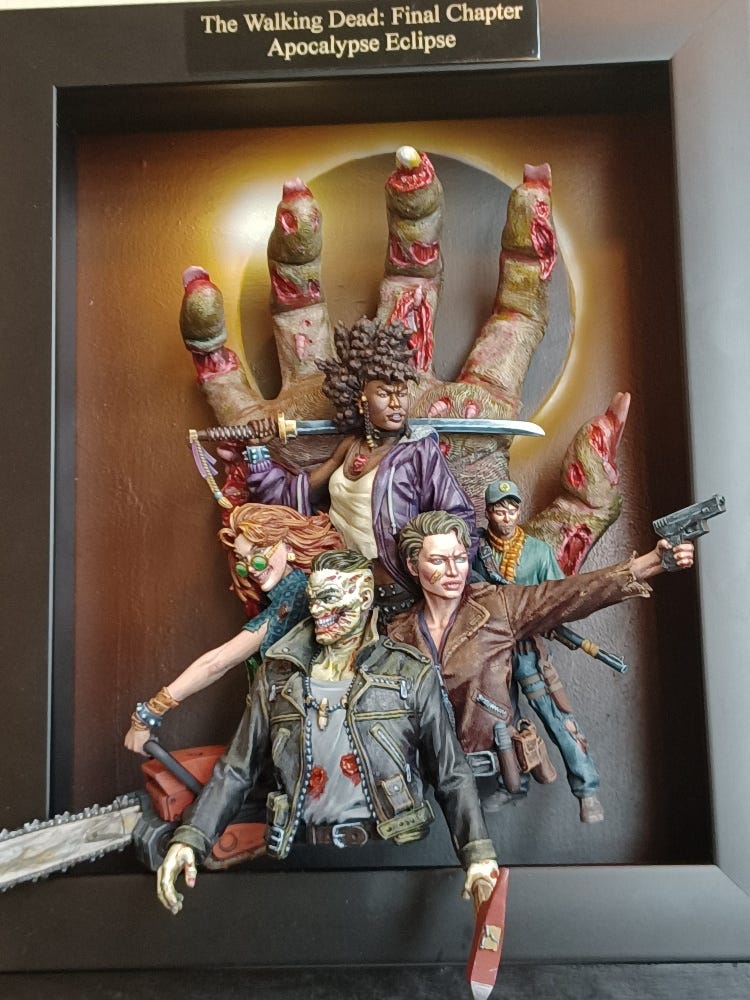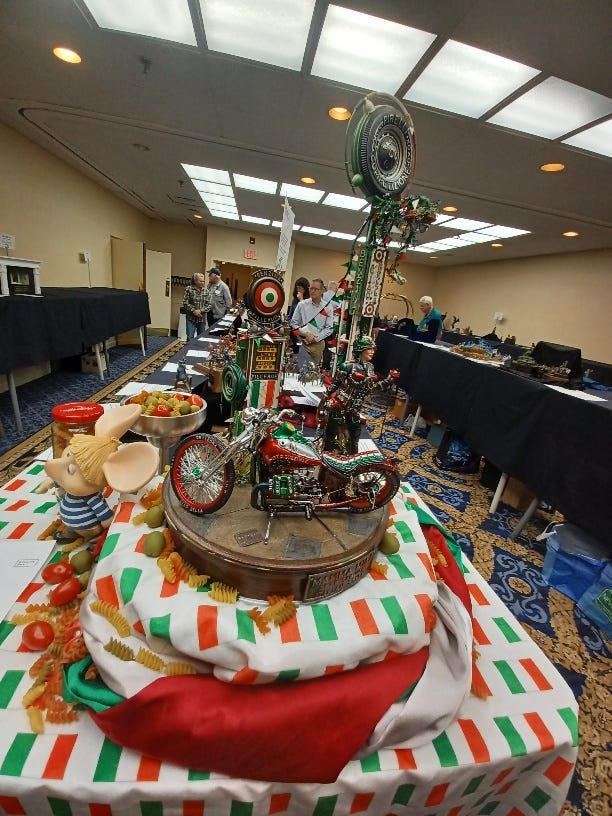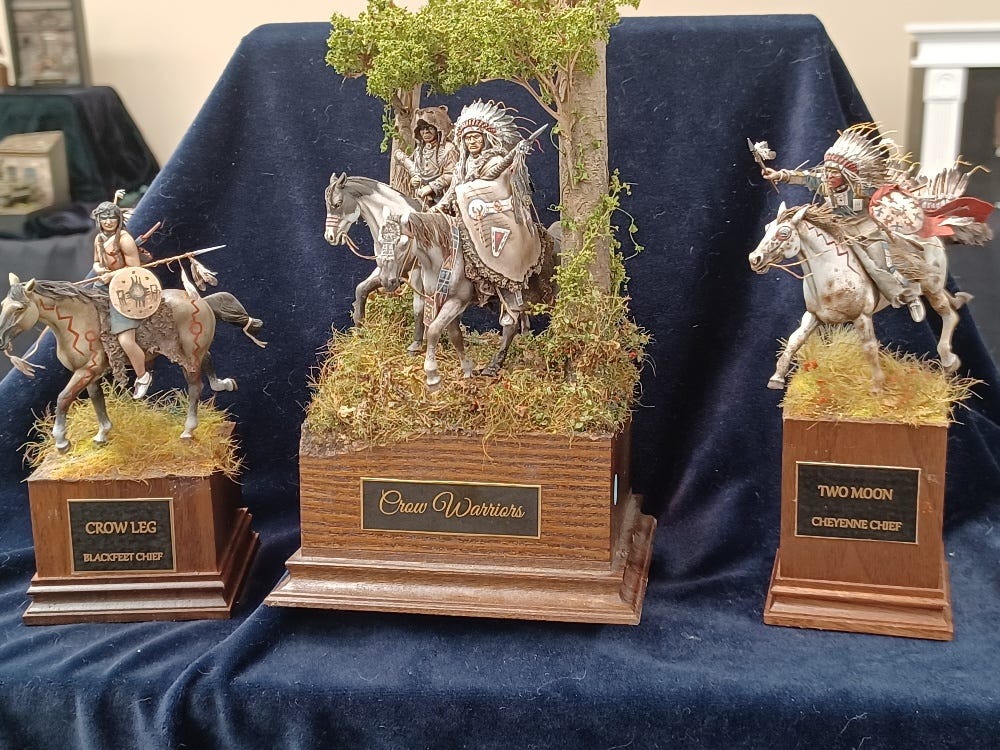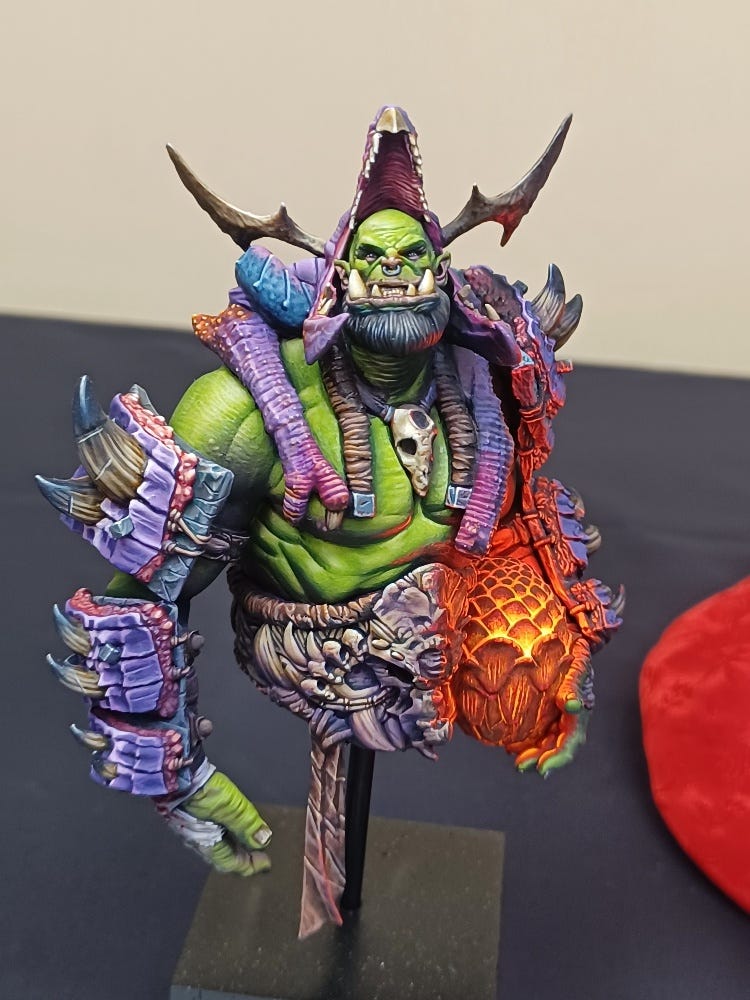Marvelous minis
History comes alive at the Miniature Figures Collectors of America Show
One of the highlights of my year is when I have the opportunity to sell my books at the annual MFCA Show in Trevose, Pennsylvania. The display of models and dioramas — both based on history and fantasy — belongs in a museum. I took a few pictures, but I’d suggest checking out the member gallery at the Miniature Figure Collectors of America web site.
Here are some shots from the show.
Speaking of miniatures, when I began formatting my books for Amazon’s Kindle ebook reader, Amazon would pay a royalty to publishers based on the number of copies that were downloaded. This led some entrepreneurial/unscrupulous publishers to begin producing books like “The Rise and Fall of the Third Reich in 30 pages” or “History in an Hour” which were flooding the market. So I began creating shorter works — sometimes an individual interview, or a collection of stories in the 30-to-100 page range.
Then Amazon wised up to these publishers that were gaming the algorithm and instead of paying a royalty based on the number of books downloaded, the royalty was based on the number of pages that were actually read once a book was downloaded, so that if someone downloade a 500-page book but only read the first chapter, the royalty would be based on 20 or 30 pages read.
With a few tweaks, the shorter books I published for Kindle could be converted to paperback form, and I discovered that by displaying them at vendor events, it gave shoppers with less time to read or tighter budgets an alternative to the full-length books. These are not excerpts but are complete stories as well.
Shoppers sometimes ask me which is my favorite book, which is a tough question because I love them all and they’re good reading, but each is very different in its own way. That said, one of the first “mini” collections of stories I compiled is “A Walk in the Sun.” The title is taken from my interview with 101st Airborne Division veteran Len Goodgal, who described joining the paratroopers as “a walk in the sun.” Len’s full interview is included in “The D-Day Dozen.”
Despite the fact that I was a newspaper copy editor, this story of Len’s still befuddles me, after, that is, I finish getting all choked up.
After I returned to the outfit [from suffering trenchfoot at Bastogne], we liberated Landsberg Prison. I didn’t see the prison. I saw the prisoners. I’ve got an interesting story about that.
When we liberated Landsberg I was right outside the town; the prison is part of the town, and I was in a machine gun position with Eddie Austin. We had three of these refugees with the stripes. They were Russian I think. I don’t know whether they were Jews or not, but they looked horrible. They looked nightmarish. And we were trying to feed them something. We had D-ration [chocolate] bars we were putting into our canteens and heating them with water, and we had some pickled eggs we used to find in the basements, and some bread that we grabbed from someplace, and a couple of things, I don’t know what. We’d find stuff in cellars. These guys wanted something to eat, which we were trying to feed them, some of the cocoa. And this one guy was shaking terribly. Eddie Austin took his coat off and gave it to him. And Jesus, I almost flipped. I said, “Are you out of your mind? What are you doing? Giving away your overcoat?”
He said, “I can’t not give it to him.”
I said, “What do you mean you can’t? They’ll bust your balls for that.”
He said, “Who needs it more, him or me?” He or I. Him or me. “Who needs it more, he or I?” is correct. He said, “Who needs it more, him or me?” Eddie Austin was a superintendent of schools in California later on, but that’s beside the point. He knew what he was saying, him or me? He knew what he was saying, “Who needs it more, him or me?”
“I don’t know, Eddie,” I said. “They’re gonna bust your balls.”
Until my dying day I’ll never forgive myself for not giving my coat to one of the other guys.”













